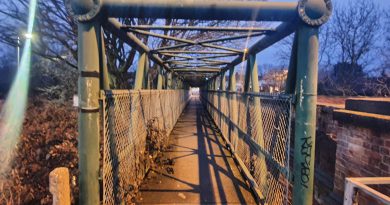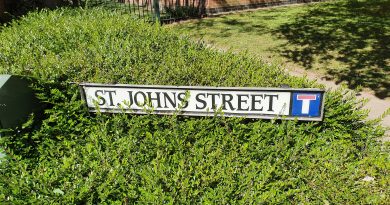Norwich – The 1834 Case of Whether Freemen Should Pay for Stalls at Norwich Market
Whilst looking for information about a different John Burrows buried at Rosary Cemetery, I found a story in the Norwich Mercury from August 1834 about how a butcher named John Burrows refused to pay for his stall at Norwich Market. He claimed that as a freeman of the city that he shouldn’t have to pay the sums which the City Corporation said were owed by him.
A special jury had been called to hear the case and there was a busy courtroom of Norwich freemen and other market traders who wanted to see how this would all turn out. If I’m being honest, this is the sort of excitement that would have made me turn up in court, a fascinating bit of drama being played out. I can imagine it was portrayed by some as an honest and hard working local man against the might of the greedy City Corporation.
The City Corporation explained that they wanted their 16s 1d from John Burrows, as he had been trading at the market as a butcher at a stall whilst knowing the costs involved. They claimed that there was no right of exemption and if there ever had been, then it was no longer in force. The Corporation wanted this settled as otherwise there would be other people not paying their bills and the market administration would soon descend into some sort of farce.
Richard Harman was called as a witness and he had been the clerk of the market for 38 years, which to be fair did make him something of an expert about the local arrangements. Burrows was not content at this and his defense team made a call for Harman’s evidence to be rejected as he was an interested witness as a collector of fees at the market, so he couldn’t be independent. The court said that it would note this, but that Harman was still entitled to speak to the court to explain the situation. I can understand why, it’d be hard to find anyone of Harman’s experience to try and give insight to this situation.
Harman explained that there were something like 300 or 400 notices at the market explaining the rates that were charged. This sounds like the bureaucracy that I can imagine from a city council, so is no doubt true. He added that he also understood that Norwich Market was corporate property and that the Norwich Corporation could build on it and charge accordingly if they so wished.
The defense team wanted to know where the charter was that gave the City Corporation the right to charge monies and they raised the point that without such evidence that the Corporation could lay any charge they wanted on their client. I can honestly almost feel the murmurings of support in the court for that line of argument. They said that custom meant that if a practice had gone on for 60 years, it might be seen as acceptable. But the market’s Richard Harman had worked there for 38 years, so there were still 22 years that weren’t explained before that.
The historical argument continued; the defense said that the only way that the City Corporation could have any right to the market was by the Charter of King Henry II, or “one of the Henrys” (that argument seems slightly vague, but there we go), and in that the waste grounds were given to the City Corporation. If that was the case, then the city freemen, who were a part of the corporate body, would have free access to it.
The chairman of this committee, who I can imagine was entirely confused by what had turned into an historical debate, said that it was foreign to his duty to enter into discussions about charters and corporations. I think that’s legal speak for he didn’t have a clue what was going on and probably wanted to go home. He asked the jury to give a decision based on what they’d heard, thereby resolving this predicament.
It took the jury 15 minutes to decide what to do. John Burrows was ordered to pay the City Corporation all the monies which he owed. I have to say, this is a little bit of an anti-climax to what could have caused the city no end of difficulties to try and resolve. But, Burrows was not giving up and he announced that he still wasn’t paying it.
Now, the City Corporation had a choice here of how it wanted to act. Did it want to be graceful and try and find a workable option on how to progress, especially given some officials wanted a resolution? No, it issued a debtors order against Burrows and he was sent to Fleet Prison in London. I’m not sure that much has changed here with the arrangements that councils go through, but there we go….
A group of Norwich freemen were not content about this and in September, they met at a pub in St. George’s Street in Norwich to discuss what to do. It was agreed that funds would be raised to clear the debts of Burrows and also for clarification of the laws and rules that the City Corporation were following.
In November 1834, the court said that a petition would be heard the following week at the Court House on Portugal Street, Lincoln’s Inn Fields, which effectively meant that he would be discharged from his debts and released from prison. The subscriptions had been successful and Burrows was free once again, although he had had to endure a couple of months in prison. There’s something of the recent shopkeepers claiming rights dating back to the Magna Carta (a case without merit, but that’s for others to explain) going to court, with the outcome perhaps inevitably the same. But, at least it was some drama for the people of Norwich….




